SPECIAL
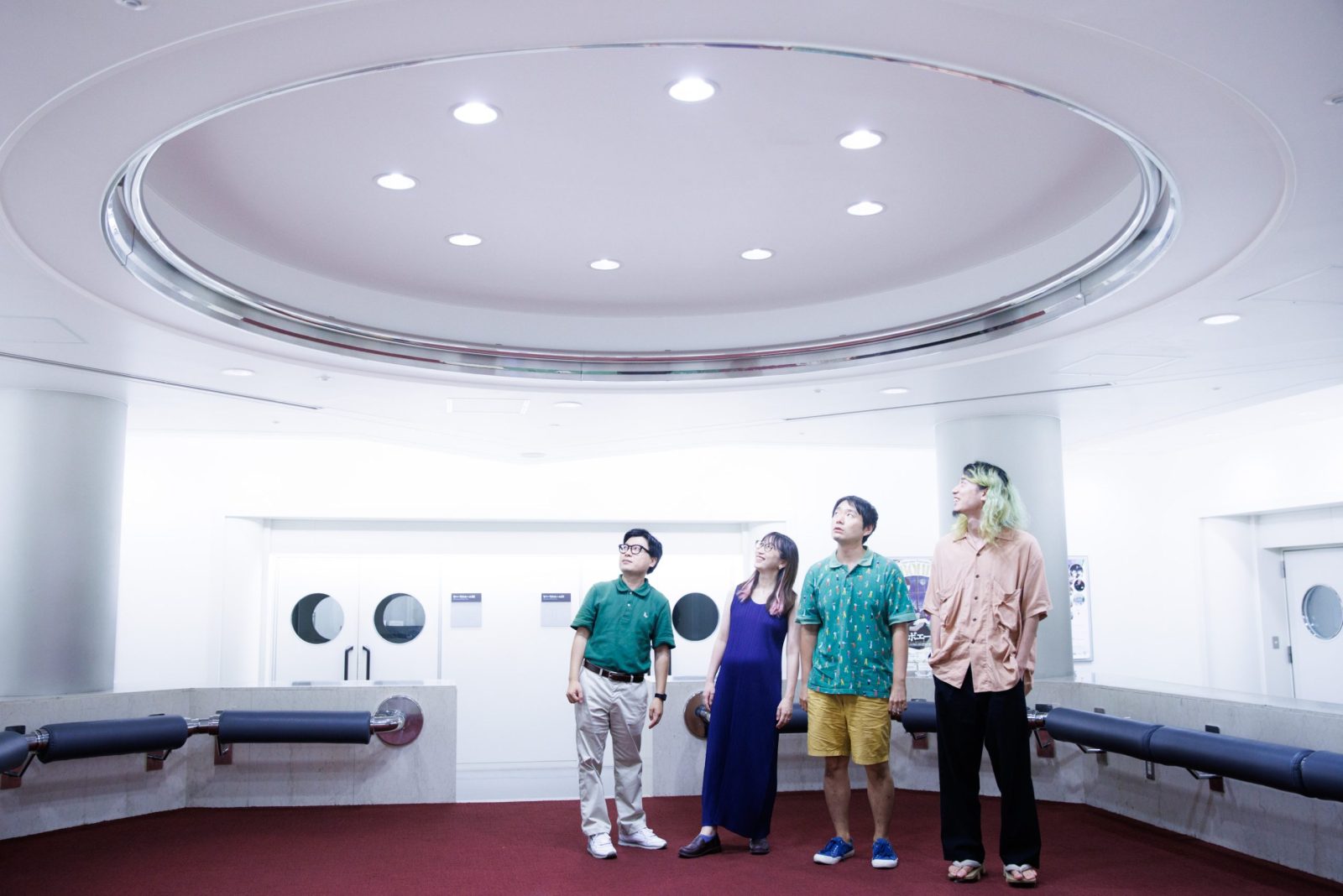
NORUHA “Virtual Disorder” Kishodai Kageyama x hiyorigeta x Shun Hatakeyama x Suzu Shibuki Roundtable Discussion [Part 1]
You too are a "NORUHA". A place where performers and audiences exist on an equal footing
The opening of the Tokyo Festival 2024 is fast approaching! This year, a diverse lineup of performances will be presented, delivering cutting-edge theatrical performances from Tokyo. The opening day on Thursday, September 19th NORUHA "Virtual Disorder", a work that premiered in 2022 and was well received, and will be performed again. This time, we will be holding a roundtable discussion with a notable unit that is participating in the Tokyo Festival for the first time, with unique creations and concepts, and theater as a place where people gather!
From various conversations between the four members, Kishodai Kageyama , the leader of the NORUHA , and actors hiyorigeta, Shun Hatakeyama, and Suzu Shibuki, the contours of the NORUHA gradually began to emerge.
(Interview and writing: Kawazoe Fumiko, Photography: Maezawa Hideto, Location: Tokyo Metropolitan Theatre)
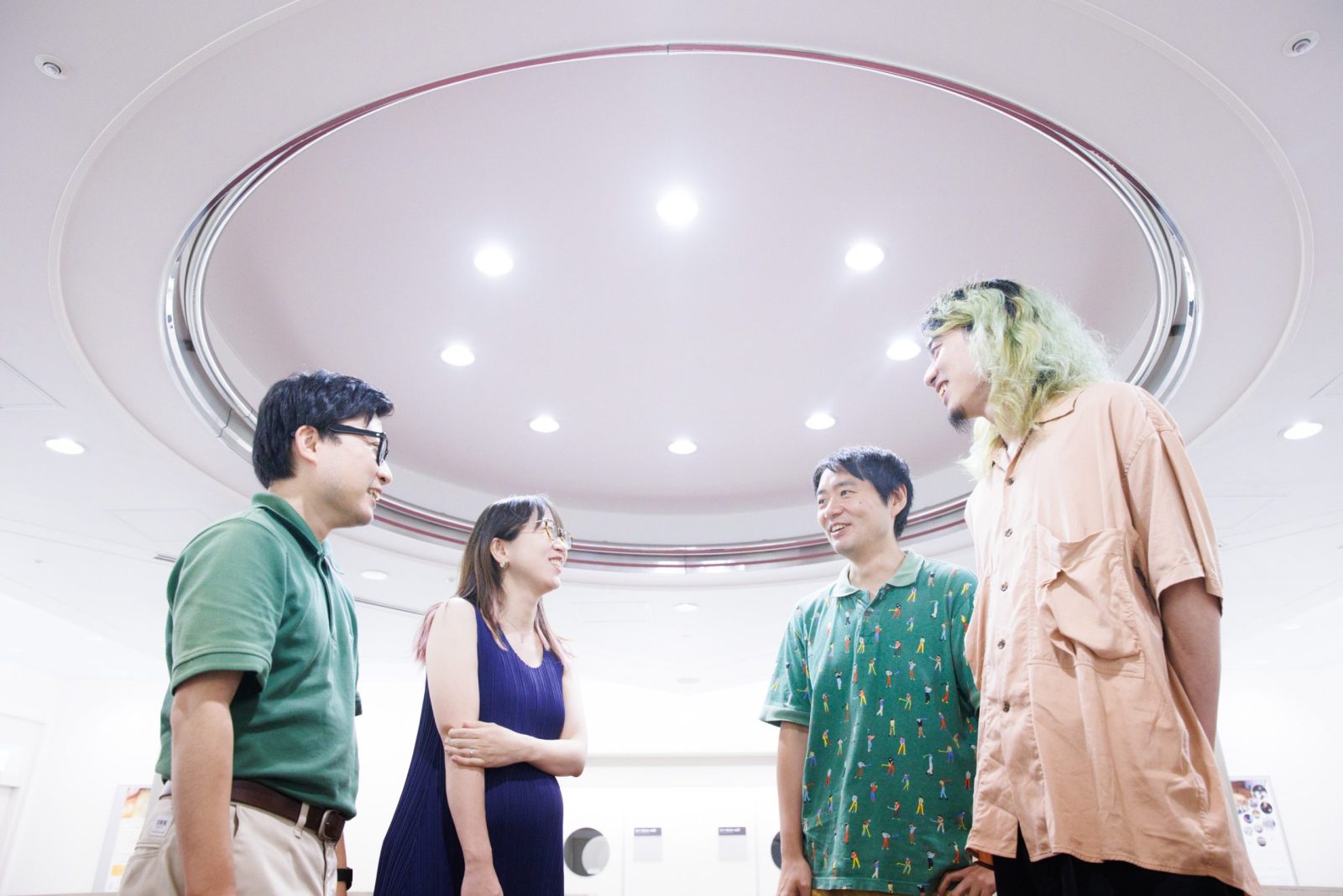
A place where you can feel at ease and think, "It's okay to be here"
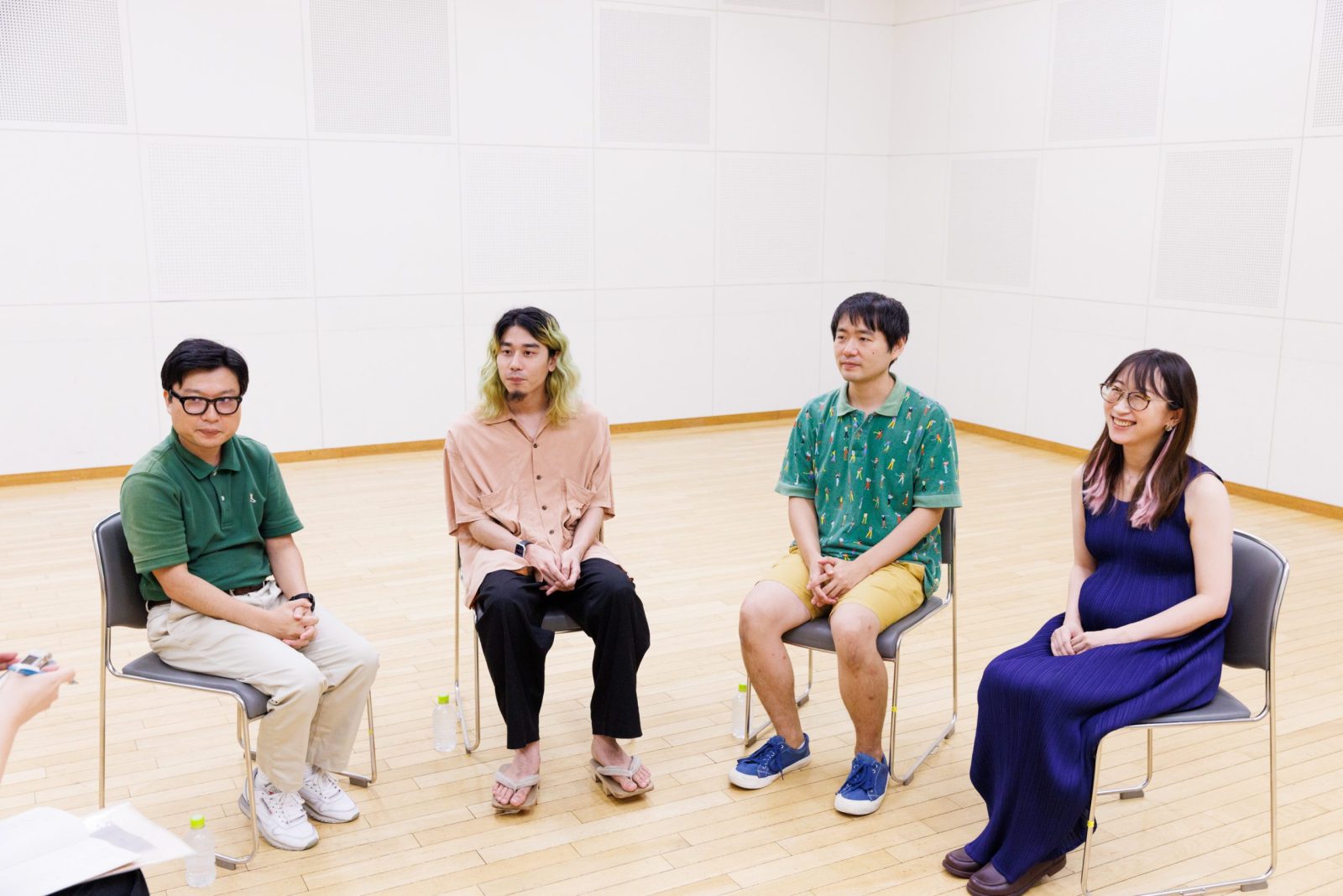
--The theater project "NORUHA(hereafter, Noriha)" will be making its first appearance at the Tokyo Festival. As an introduction to the group, let's start by asking about its origins. The group started in 2018, and initially started out as Kishodai Kageyama's solo unit.
Kageyama: I was originally active in a solo unit called sons wo: (2008-2018) while I was still a student, then we renamed it to Noruha, and in 2019 hiyorigeta joined, and the following year Shun Hatakeyama and Shibuki Suzu joined, and the current members were assembled...that's the simple history. In other words, it wasn't just the four of us getting together and deciding to "create a theater group." After 10 years of doing experimental performances based on my interests and concerns at the time, sons wo: had solidified to a certain extent the direction of what I wanted to do. "If that's the case, let's start a theater project with that as a concept," was my motivation when the unit first started.
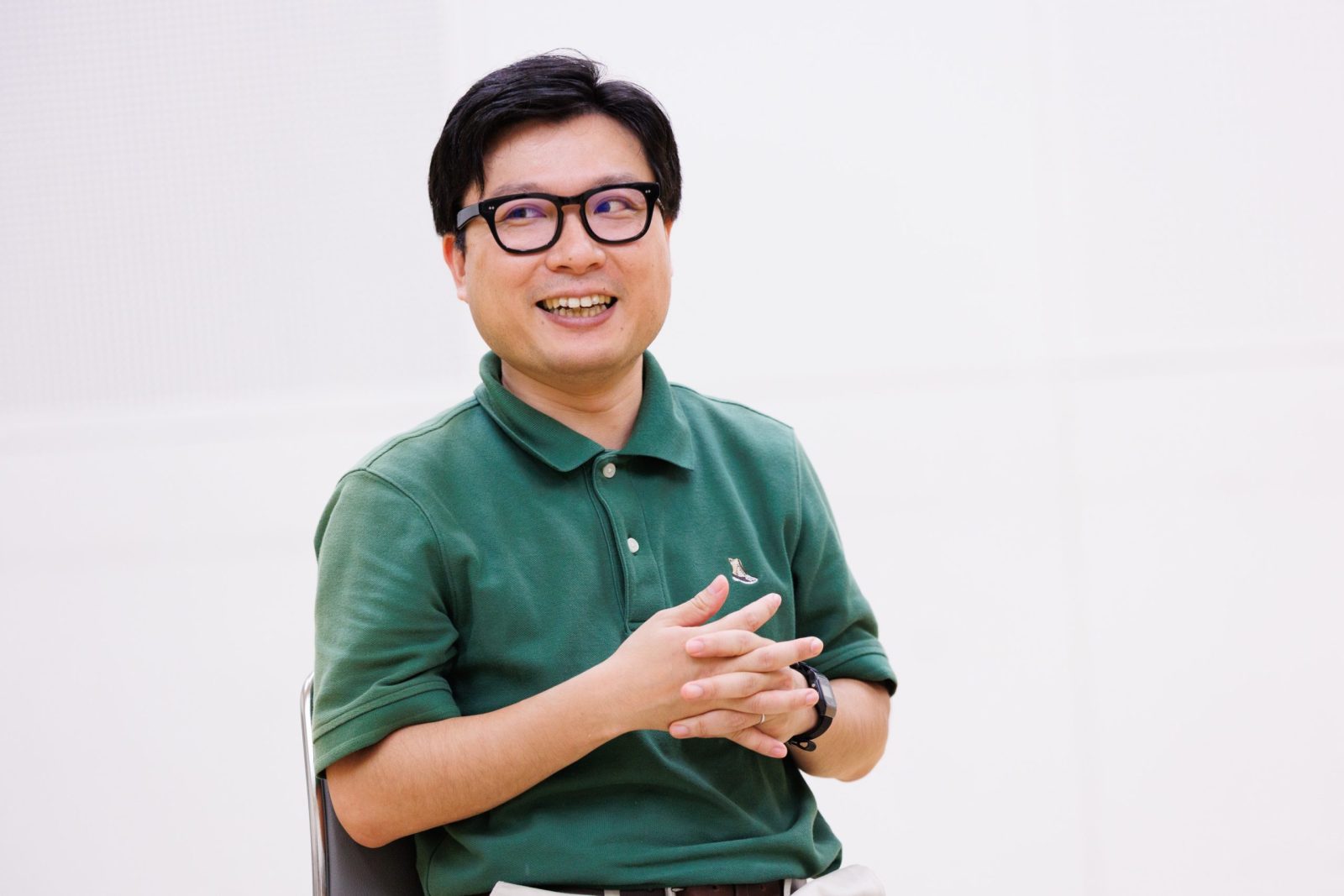
--Please tell us how each of you became a “project member.”
hiyorigeta first met Kageyama when I was 18 and had just entered university. I was introduced to a workshop by an acquaintance and participated in it. My first impression was, "There are people in Tokyo who do difficult theater" (laughs). We didn't have any contact for a while after that, and when I was in my fourth year of university, I passed the workshop audition for sons wo: Exile Europa (2018) and performed in Kageyama's work for the first time. It seems that after four years, I have started to understand difficult theater (laughs). At that time, I was thinking about things like "Why do I want to do theater?" and "Why is acting a good idea?", and when I saw Kageyama's work, which questions the very essence of theater, I felt that "This might be what I want to do." If I graduate and become a freelance actor, I will have fewer opportunities to appear on stage. I thought it would be better to belong to a company, so I joined Noruha... that's how it happened.
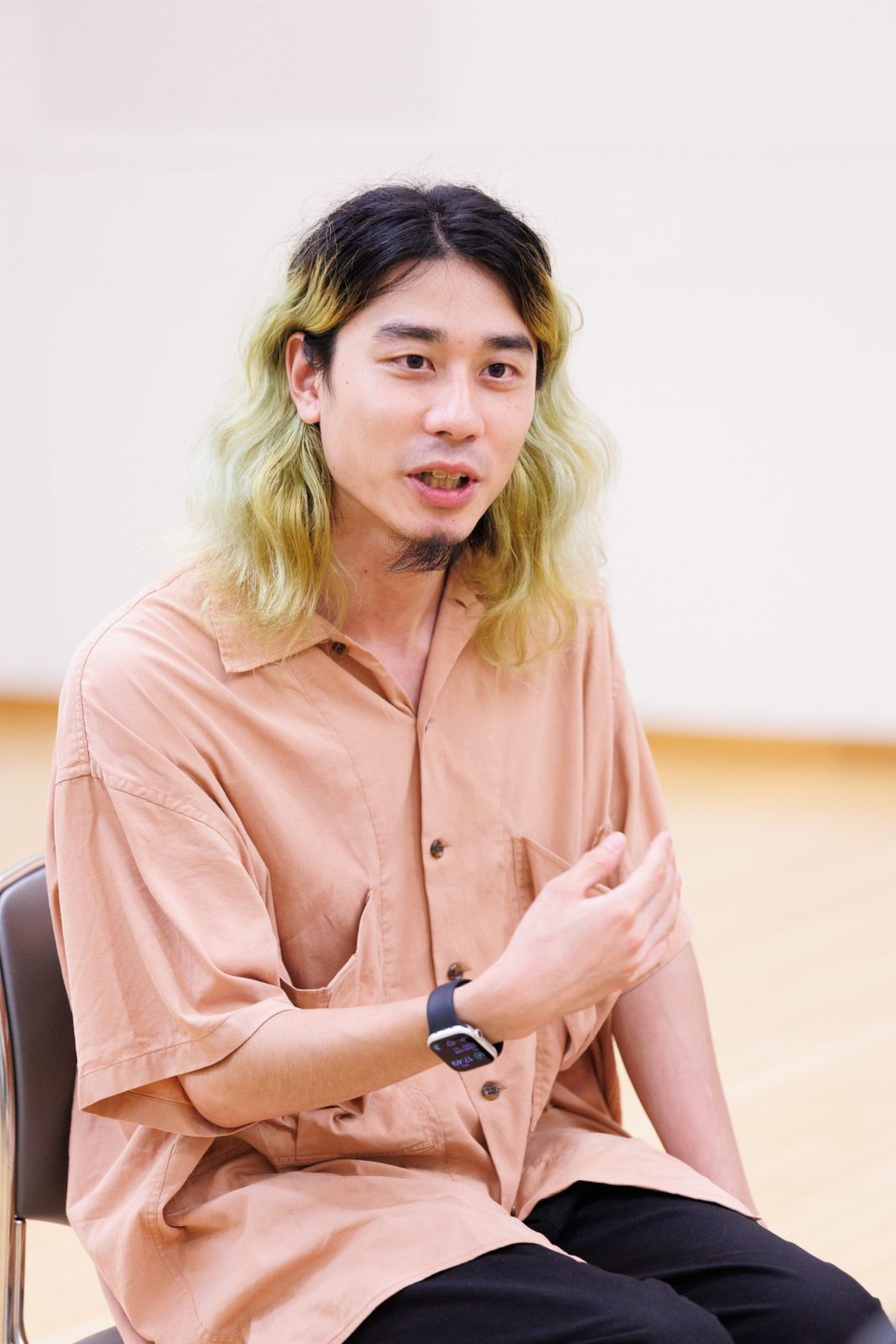
Kageyama: Job hunting (laughs).
It's a hiyorigeta for job hunting (laughs). But when I told Kageyama that I wanted to join, he said, "I can't say 'yes,' right away, but if our visions overlap, then I'll join." After that, we talked at a bar in Jimbocho, and we agreed that "the directions we're looking for aren't that far apart," so we had a drink together... and that's how we got to where we are today.
Hey Hatakeyama and Shibuki!
-- A fact that even the other members didn't know (laughs). Hatakeyama-san and Shibuki-san joined at roughly the same time.
Hatakeyama: I attended the Theater Arts Academy in Ikebukuro from the age of 18 to 20, and after graduating, I worked part-time as a freelance actor while performing in plays. When I appeared in the unit "Bruno Produce" led by my co-star in this drama, Kiyoshi Hashimoto, I met Kageyama, who appeared as an after-talk guest. After that, I appeared in sons wo: and was interested in his strong commitment to the way lines are spoken. Although I continued to appear in Kageyama's works, I was invited to become a member in 2020 after seeing Geta's one-man play (NORUHA"Qua") at BUoY in Kitasenju. I was invited at a cafe near the theater, and I said, "I like the two of you, so if you don't mind me, I'll join you," and joined on the spot. In other words, (the reason for joining) is human power (laughs).
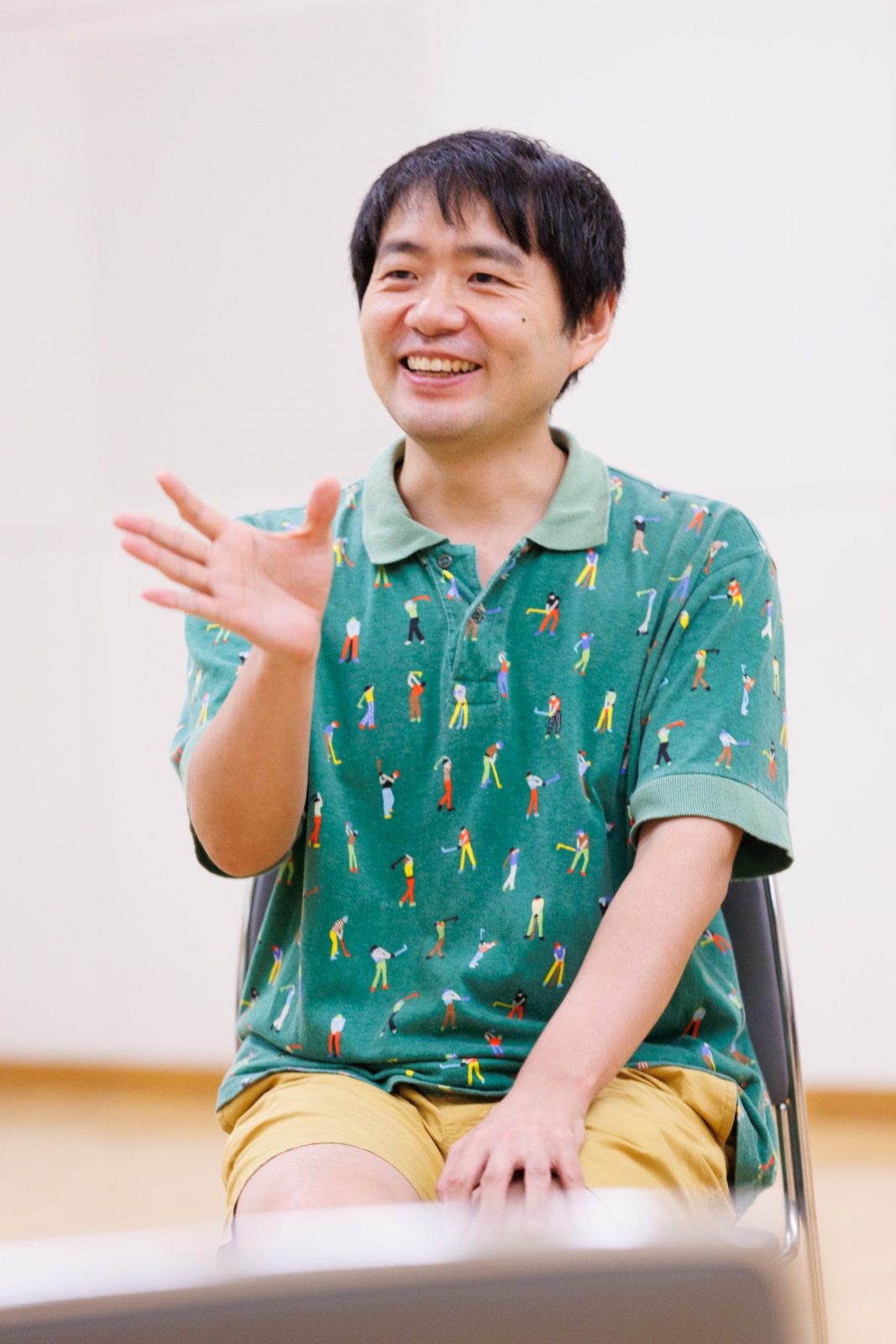
Shibuki: I was a junior in the university's drama club. I joined as a freshman the year Kageyama graduated, so we didn't overlap, but sons wo: was a hot topic among freshmen, and I saw it in my second year of university and thought it was really interesting. Since then, I've been watching their works, but I went back to my hometown after graduation, so I stayed away from theater for a while. But when I found out that sons wo: was going on hiatus... that's when Kageyama made the "I'm quitting, I'm quitting" scam (laughs).
Kageyama: No no, when we announced the new unit right after the final performance, a lot of people said that to us (laughs). That wasn't my intention though.
Shibuki: I went all the way from my hometown to see them, and I was totally fooled! After that, I came back to Tokyo and continued to watch their performances as an audience member. But when I heard that Hatakeyama-san would be joining in 2020, I told Kageyama-san, "We're not a masculine unit, but a theater company with only three men... I don't want the world to see us with that image," and he said, "Well, do you want to join?" Since I'm not an actor, I was given a new title of "watcher and advisor" and became a member.
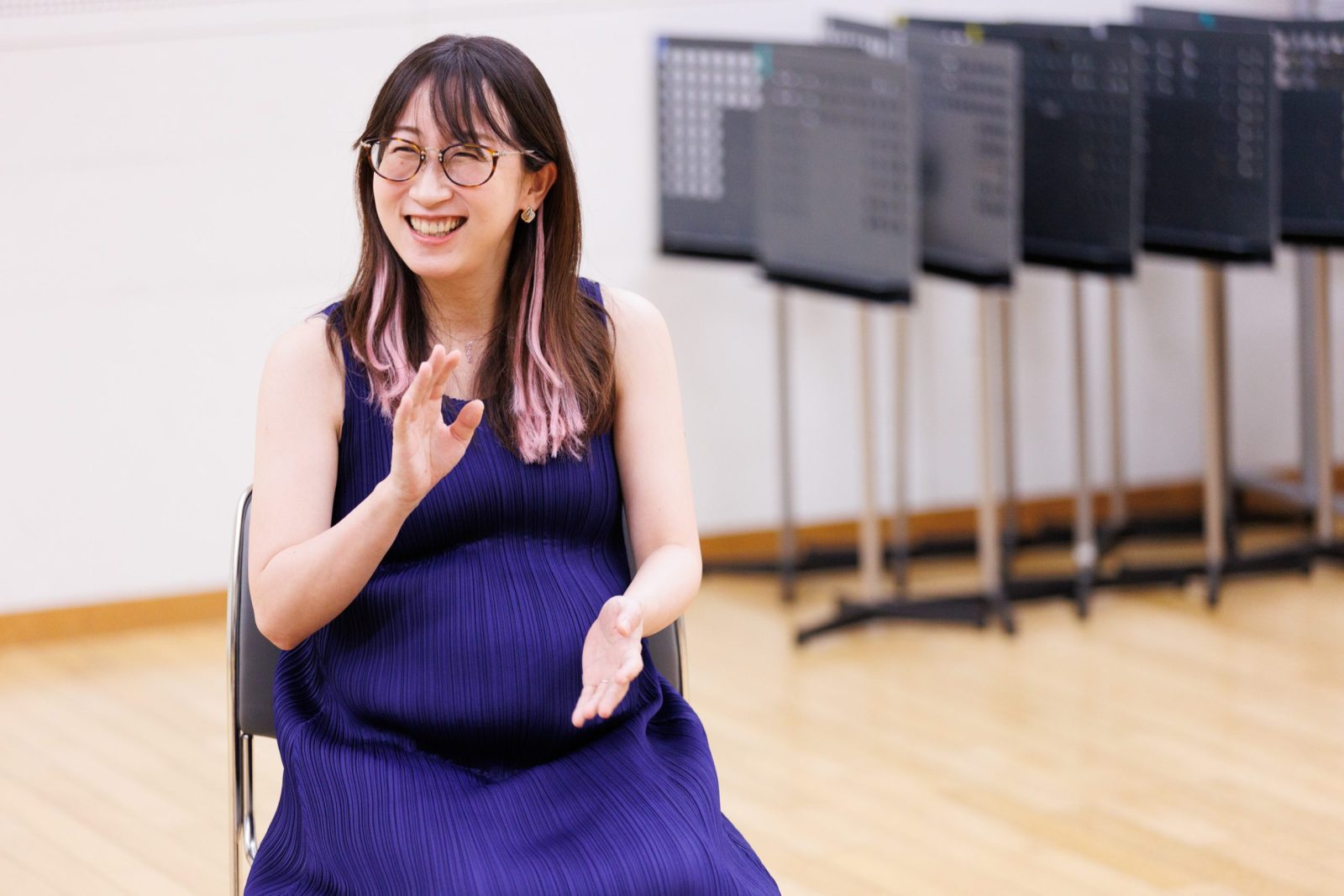
Hatakeyama: To explain it in an easy-to-understand way for outsiders, I would say it’s like being an “spectator on the inside.”
Shibuki: Yes, I think of myself as someone who is involved with the unit and the work from a slightly detached perspective. I’m usually an office worker. I’m able to continue thinking about theater while living my daily life at the office, and that’s something that’s nice for an audience member, isn’t it? People tend to think that watching a play requires a certain kind of “spirit,” such as “do I need to know a lot about theater companies?” But the unit’s concept* itself clearly states that if you watch a performance, you can call yourself a “NORUHA.” It’s great to be able to think “I’m allowed to be here” in a flat manner.
*The “NORUHA Manifesto” and “About the NORUHA,” which are quotations based on the entire concept, are available in full on the official website and can be read by anyone.
A theatrical production is a place
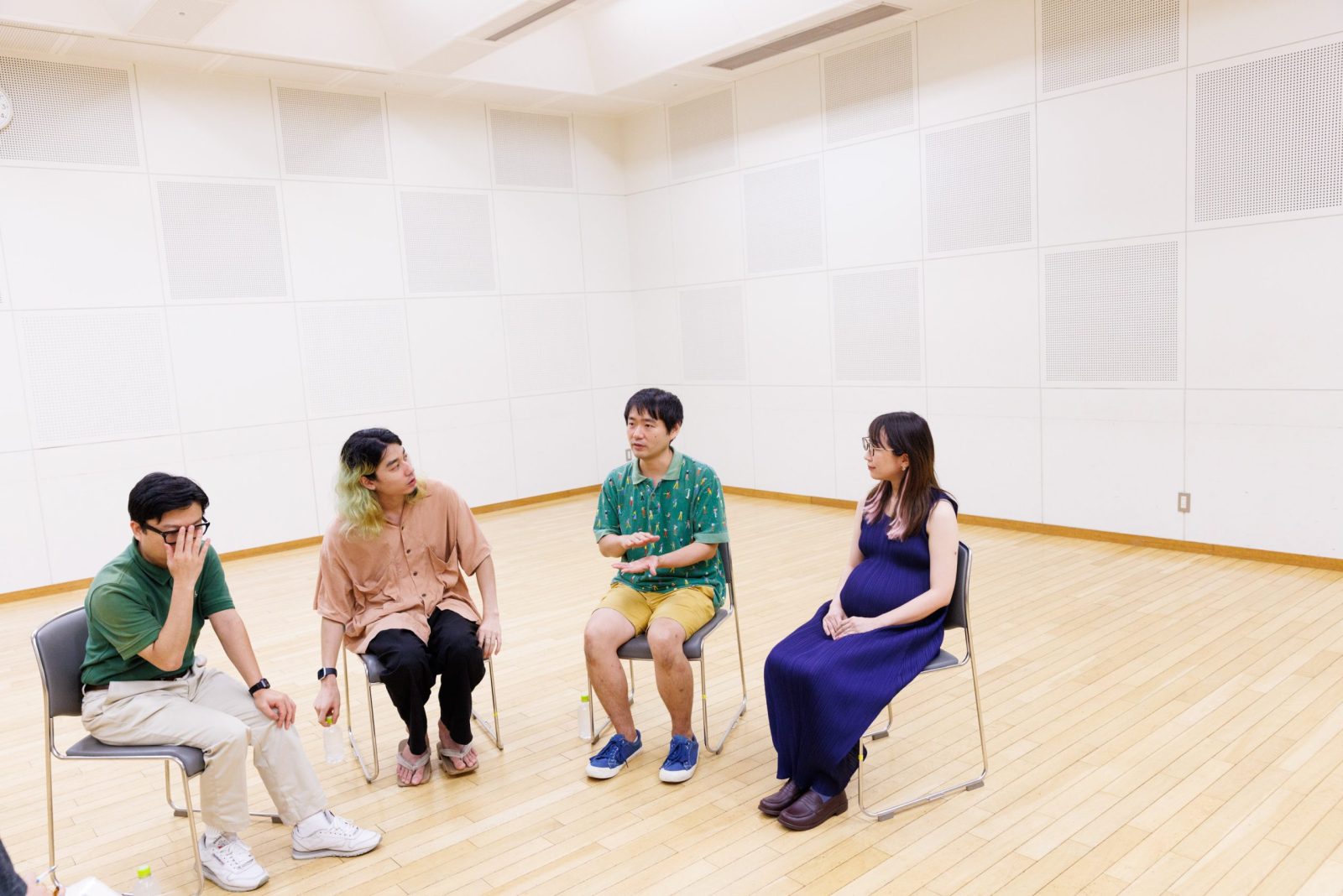
-From what I’ve heard, the four members came together after considering the balance needed to move the project forward.
hiyorigeta Kageyama originally intended to be a solo unit, but then I joined in (laughs).
Kageyama: When Hatakeyama-kun joined, Shibuki-san pointed out that it was still not good, and as a result, the number of members increased (laughs). I don’t think we gathered together with the goal of completing the project. I’m the type of person who wants to think of a basic concept of “this kind of production I want to do,” so I suggest that, but I want to leave room for everyone to expand on it as they like. I think of a theatrical production as a place to gather actors, staff, audience, and various artists…the people you want to be there, or who you want to be there. You’re not all connected to a project or group, are you?
Shibuki: Kageyama also publishes booklets and has an atelier* called “Disc Ride Place,” so his activities are quite diverse…
*An atelier opened by the Noriha group in the Oku area of Tokyo in 2021. Multiple artists collaborate and create on a daily basis.
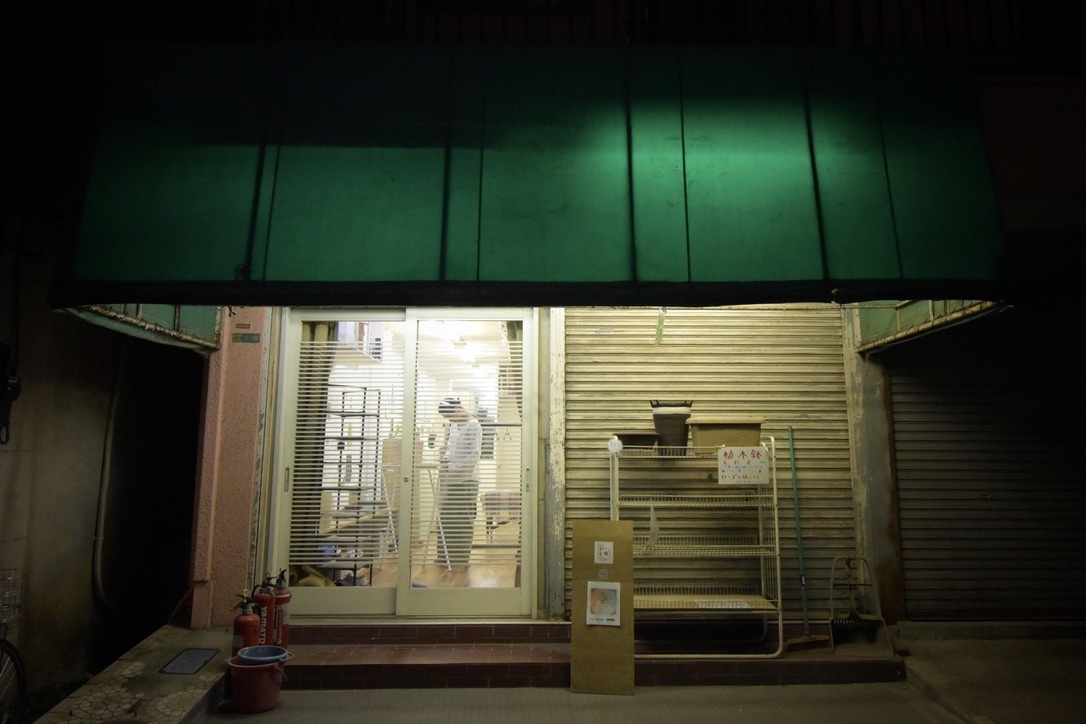
The idea of hiyorigeta is not unified. But I think everyone can relate to the concept. I wonder if there are different ways of interpreting it? What do you think?
Hatakeyama: I understand exactly what Geta-kun means by “empathy,” and I think that’s how we gather. The concept of “NORUHA is a time for multiple artists and performers to be on an equal footing, a place where they can be where they should be” feels right to me as a member of society. At the same time, as an actor, I think about completely different things, and I think about things like forcing myself to accept the difficulties of speaking on stage… I think about things like that. There are some problems when I try to connect Kageyama-kun’s theatrical concepts with my own body. But as an actor, I like the challenge of thinking about that in itself. If I were living a normal life, I wouldn’t have to worry about such things (laughs).
–Everyone has a completely different sense of purpose but they are involved in one production. It functions as a place where everyone is actively involved.
Kageyama: I’ve been searching for what to do, so I think it’s changed a lot from the one-man unit I had in mind at first. So, I haven’t really been able to sum up what happened because of these four people. Of course, there were a lot of good things, but the strongest feeling I have is that “we’ve been doing a lot of different things and that’s how we got to where we are now.”
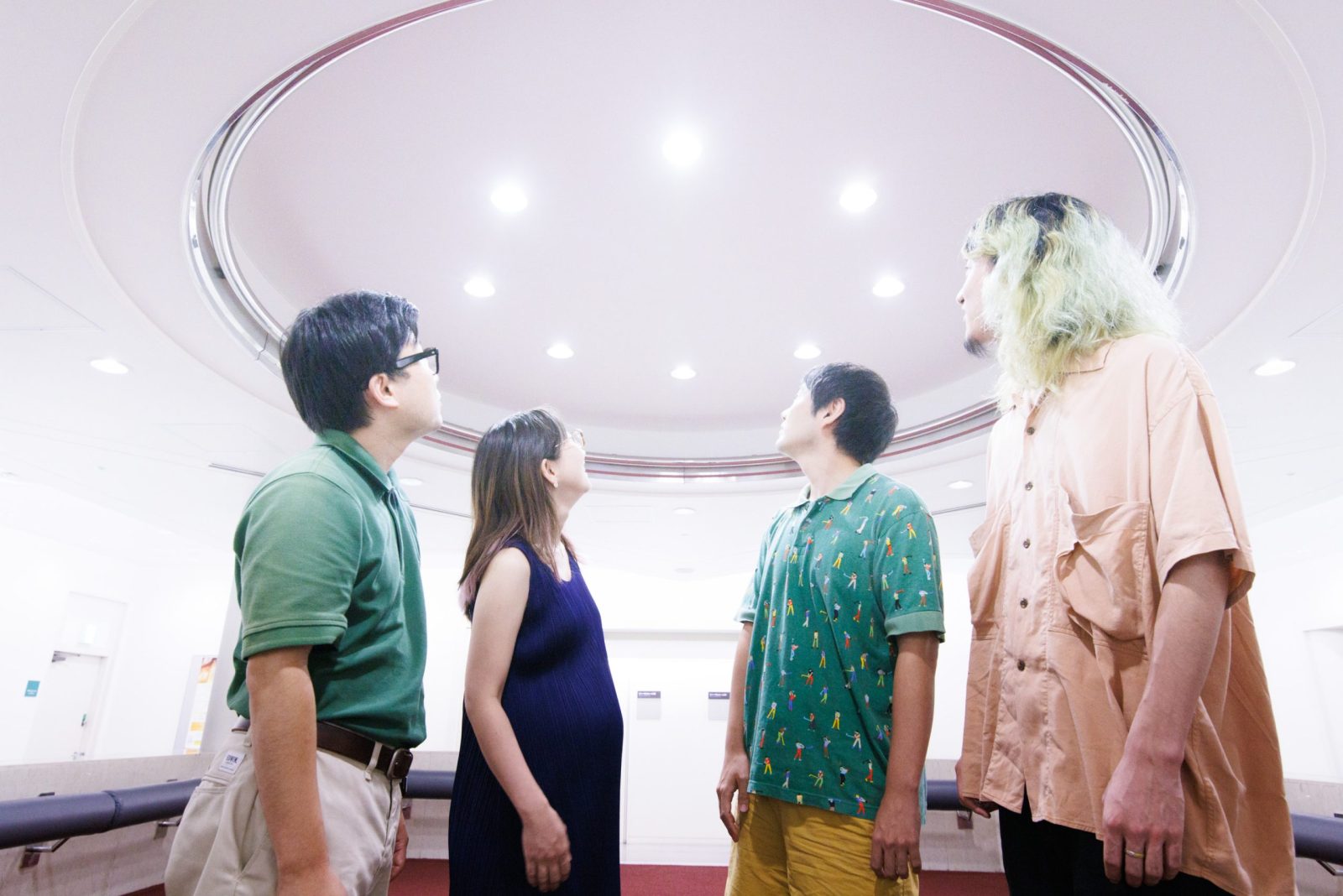
Kishodai Kageyama
Born in Hamamatsu, Shizuoka Prefecture in 1988. Graduated from Waseda University’s School of Letters, Arts and Sciences. Founded the theater project “sons wo:” in 2008. Works on playwriting, directing and sound design. Changed name to “NORUHA” in 2018. Participated in Festival/Tokyo 13 open call program in 2013 with “Noraneko no Kurininu”. A Saison Fellow at the Saison Foundation since 2015. Won the 17th AAF Drama Award Grand Prize in 2017 for “City III”.
hiyorigeta(Weather-friendly Clogs)
Born in Tottori Prefecture in 1995. NORUHA in 2019. Has appeared in all subsequent productions. Special skills include cooking, tree climbing, tidying up, and praising people. Loves eating delicious food with others. Knowledgeable about geta and Oishinbo.
Shun Hatakeyama
Born in Sapporo, Hokkaido in 1987. Graduated from the Department of Dramatic Arts at the Performing Arts Academy. As an actor, he has appeared in productions such as Bruno Produce, 20 Years Old Country, and Demi-Human City. He has also appeared in Kishodai Kageyama productions such as Good Morning Club, Wild Kafka @ Delicious Curry, and Penal Colony Europa. He is a director for the theater unit People Futoshi.
http://people-futoshi.blogspot.com/
Suzu Shibuki
Born in Hiroshima Prefecture in 1990. Office worker. Essay writer. Under the name “A Little Party ( @A_little_party ),” he is busy making mochi and making doujinshi.
note: https://note.com/suzu_shibuki
On joining the NORUHA/ Suzu Shibuki: https://note.com/noruha/n/n05f26a4f098d
NORUHA "Virtual Disorder"
Directed by: Kishodai Kageyama*, Momo Hachisu(Group Nohara)
Screenplay: Kishodai Kageyama*
Cast: Yuko Tsujimura, Risa Tsuruta(Daydream), Kiyoshi Hashimoto(Bruno Produce/y/n), Shun Hatakeyama* (PEOPLE Futoshi), hiyorigeta*
*= NORUHA Project Team
Period: Thursday, September 19th, 2024 to Sunday, September 22nd (National Holiday)
Location: Tokyo Metropolitan Theatre, Theatre West Language: Japanese (with English open subtitles, all dates)
Ticket price: All seats open (with admission number) Tax included Adults 3,000 yen / Under 29 years old 2,000 yen (limited number) / Under 18 years old free (limited number)
▷ Click here for details of the program





